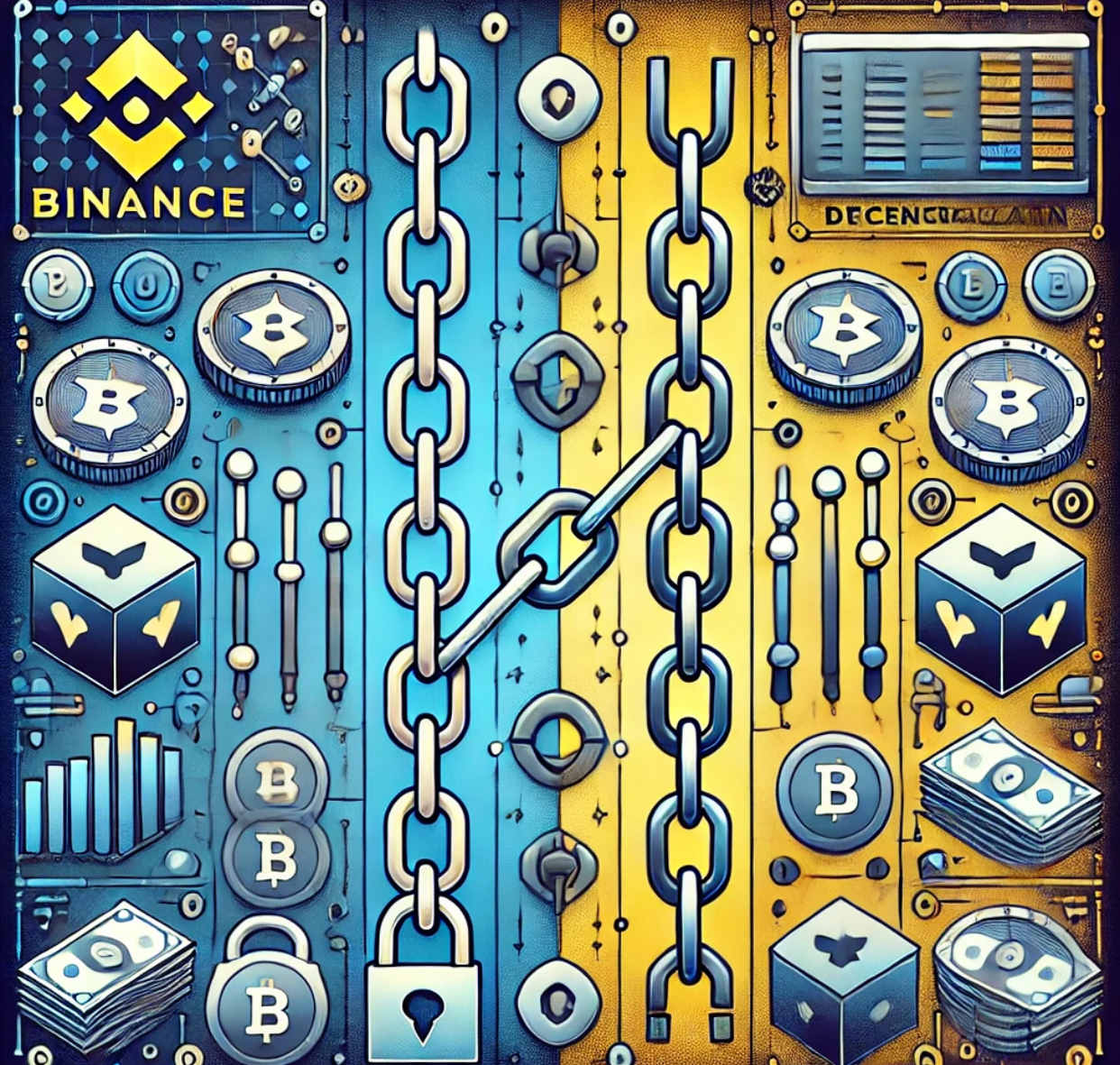Boycott Binance? The Case for Decentralization in a Centralized World

Hi guys, what are we to make of this? The fangs of centralization has once again smitten the people of the decentralized world. Now everyone is spreading hashtag boycott Binance as if they weren’t the same people that placed them on such high pedestal in the first place.
Incase you’re living under a stone or streaming human internet from another planet and you’re reading this, it was revealed that Binance has allegedly been in bed with Israeli government , from censoring to revealing transactions of Palestinians based on orders from Israelis government. Let’s dive deeper into this.
It’s no secret that centralization comes with its own set of problems, and the latest revelations about Binance only reinforce the dangers of relying on centralized entities in the crypto space.
Reports have surfaced that Binance has allegedly been collaborating with the Israeli government, one of the world's most powerful states, in a way that contradicts the very ethos of cryptocurrency – privacy, decentralization, and freedom from government overreach.
The allegations are particularly concerning because they suggest that Binance has been involved in revealing sensitive financial transactions of Palestinians, potentially compromising their safety and privacy.
This action, if true, reflects the broader trend of centralized exchanges succumbing to pressure from governments to enforce policies that may conflict with the interests and rights of their users.
What’s more disturbing is that this isn't the first time Binance has faced criticism for its close ties with various governments. Despite marketing itself as a champion of the decentralized world, Binance’s actions often reflect a willingness to cooperate with centralized authorities when it suits their interests.
Boycott Binance?
Whether it's complying with stringent regulatory demands, freezing accounts without clear justification, or now, allegedly handing over transaction data to the Israeli government, Binance appears to be playing both sides of the fence.
The situation has sparked outrage across the global crypto community, with many calling for a boycott of Binance. This is an important moment for the crypto world, as it highlights the importance of moving towards truly decentralized platforms where no single entity has the power to compromise user privacy and autonomy.
The Role Of Thorchain
This situation highlights decentralized projects like THORChain that embody the true spirit of cryptocurrency. Unlike centralized exchanges, THORChain operates as a fully decentralized liquidity network, allowing users to swap assets across different blockchains without the need for an intermediary.
This means that no single entity controls the flow of funds, and there’s no central authority that can be pressured into revealing user data or freezing accounts.
THORChain is built on a foundation of privacy, security, and decentralization, which directly contrasts with the vulnerabilities exposed by centralized exchanges like Binance.
By eliminating the need for trust in a central authority, THORChain ensures that users retain full control over their assets, protecting them from the kinds of government overreach and censorship that we’re now witnessing.
Moreover, THORChain’s unique approach to cross-chain liquidity is a game-changer in the DeFi space. It enables seamless swaps between different cryptocurrencies without relying on wrapped tokens or synthetic assets, which adds an extra layer of security and transparency.
In a world where centralized exchanges are increasingly under scrutiny, platforms like THORChain offer a viable and trustworthy alternative.
Conclusion
The ongoing issues with Binance serve as a powerful reminder that the crypto community must continue to support and build upon these decentralized projects. By doing so, we can protect the core values of cryptocurrency and ensure that our financial sovereignty remains intact.
It’s time to take a stand for true decentralization, and projects like THORChain are leading the way.
What do you think about the role of decentralized exchanges in the future of crypto? Do you see them as the solution to the problems posed by centralized platforms, or do you believe there are still challenges to overcome?
Thanks for reading.
Posted Using InLeo Alpha